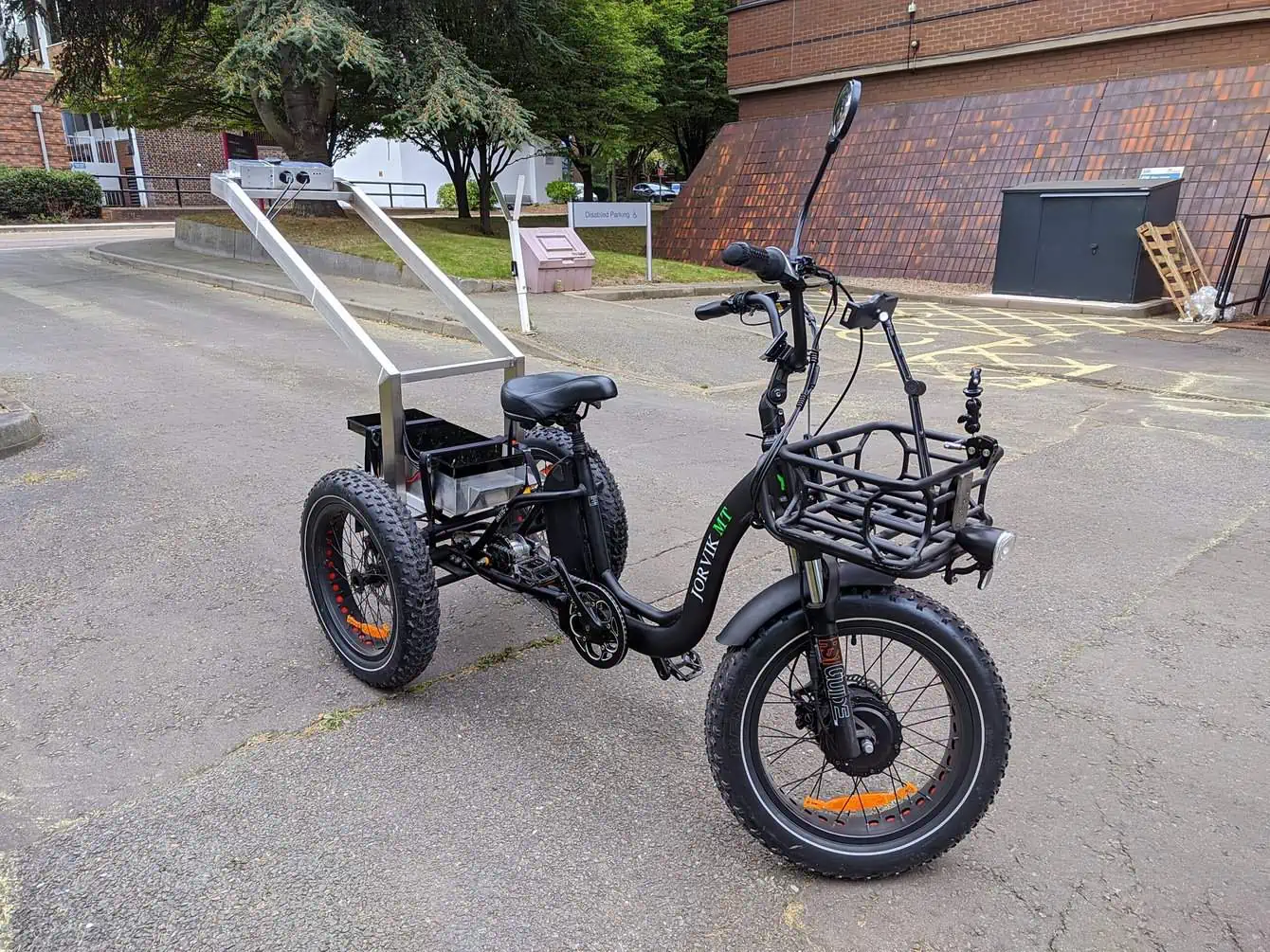

The climate crisis has propelled eco-friendly modes of transport, such as cycling and walking, into the spotlight. The UK’s Department of Transport is actively promoting them as the future of short-distance travel, emphasizing their role in fostering sustainable travel and health benefits. Regular maintenance of cycleways is necessary to continuously reap the benefits of ongoing investments worth billions of pounds. Cycleways have been traditionally inspected by Detailed Visual Inspection (DVI) and Coarse Visual Inspection (CVI) for maintenance. These manual inspection methods are slow, imprecise, subjective, prone to errors due to cumbersome post-survey digitization, and are devoid of quantitative analysis, all of which highlight the pressing need for automation.
Efforts have been made to employ different sensor technologies, such as accelerometers, for cycleway surveys. However, their market adoption has been hindered by the lack of detailed survey outcomes. Laser scanning, despite its established reputation for road scanning, relies on dedicated large vehicles, making it unsuitable for narrower cycle tracks and footways.
RoadGauge Ltd has developed a groundbreaking 3D imaging system for cycleway and footway assessment. This innovation features an affordable multisensor hardware system mounted on a trike for automated condition evaluation. Powered by a rechargeable battery and wirelessly controlled using a bespoke mobile app, the trike-mounted unit achieves scanning speeds of up to 10 km/h and boasts an impressive imaging accuracy of 4 mm, all while remaining resilient to vibrations.
Data captured by the trike system is directly uploaded to the cloud through a secure interface upon survey completion. It is then processed using RoadGaugeAI platform, a cutting-edge pavement analysis software. What sets this solution apart is the incorporation of our AI and 3D computer vision algorithms. These algorithms automatically detect, classify, and measure surface distresses (e.g., potholes, subsidence, cracks). In addition, safety-related issues, such as water ponding, are detected by the AI. All issues are individually located on a map.
The advantages of this product are compelling. It is ten times faster than the most accurate manual surveys and costs just a fraction of existing methods per kilometre of tracks inspected. The direct digitization of data eliminates the need for hours of handwritten record translation. Reduced inspection times also enable broader network coverage and surveys that don’t disrupt traffic flow.
RoadGauge’s groundbreaking innovation offers a cost-effective solution to the challenges of inspecting cycleways. By integrating advanced hardware and software, this technology not only provides accurate assessments but also enhances accessibility for both local authorities and private contractors. This disruptive approach has the potential to revolutionize the industry by democratizing ownership of sophisticated survey hardware for cycle tracks.

